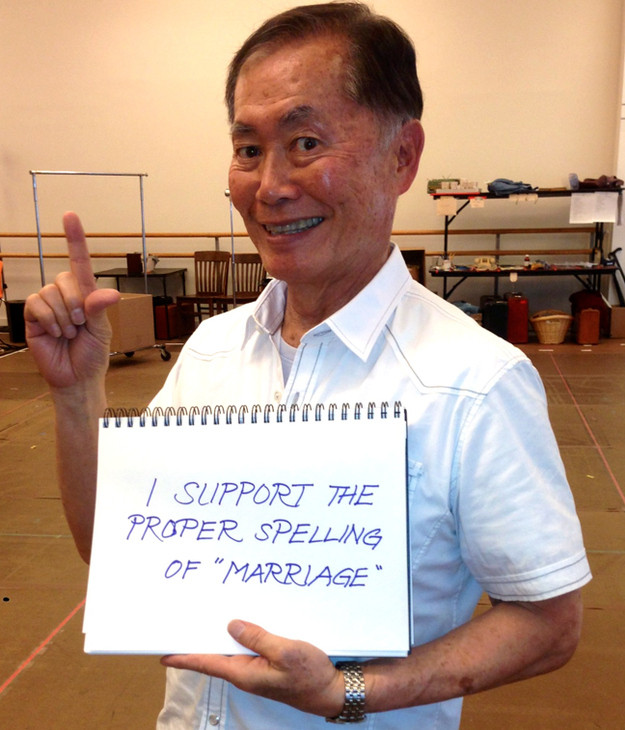June 26th was a huge day in the fight for
equality of rights. The United States Supreme Court voted to cancel DOMA, a
policy that was preventing marriage equality for gay and lesbian couples.
George Takei, famous Star Trek actor and gay rights advocate, summed up my feelings
on the subject very well with his facebook status on the day the vote happened:
“Today
marks a watershed moment in history and a tremendous victory for the principle
of equality. The 5-4 decision by our Supreme Court striking down DOMA affirms
the universality of love--the desire of all people not only to find, but to
value and affirm, a lifelong commitment to another person.
I have lived nearly four score years, and have borne witness to both the heartbreak and promise of true justice and equality in America. Today my heart soars, and my faith in the promise of our great nation is renewed.
Now, if there's anything we gays know how to do well, it is to celebrate! Let the joy of this day ring out with PRIDE.”
I have lived nearly four score years, and have borne witness to both the heartbreak and promise of true justice and equality in America. Today my heart soars, and my faith in the promise of our great nation is renewed.
Now, if there's anything we gays know how to do well, it is to celebrate! Let the joy of this day ring out with PRIDE.”
Although
I am not American, and not affected by American policies, I consider this
change to be a great stride forward in not just in gay rights, but human rights
worldwide! The United States is one of the most developed countries in the
world, and has now taken a stance to show the rest of the world that marriage
quality is a right. This has not only furthered the development of the United
States as a nation, but also sets a precedence for other countries to do the
same. In my opinion, marriage equality is a human right. I believe people
should be able to marry whoever they love, no matter what. I also firmly believe
that one’s sexual orientation should not affect the way they are treated. This
makes gay rights an inherently development issue, because it brings into
question equality and reducing discrimination against minority groups. As
someone with gay family members and friends, gay rights is an issue close to my
heart which I am extremely proud to support! Although this one decision doesn’t
solve inequality and rights issues entirely, it’s certainly a huge step in the
right direction.


